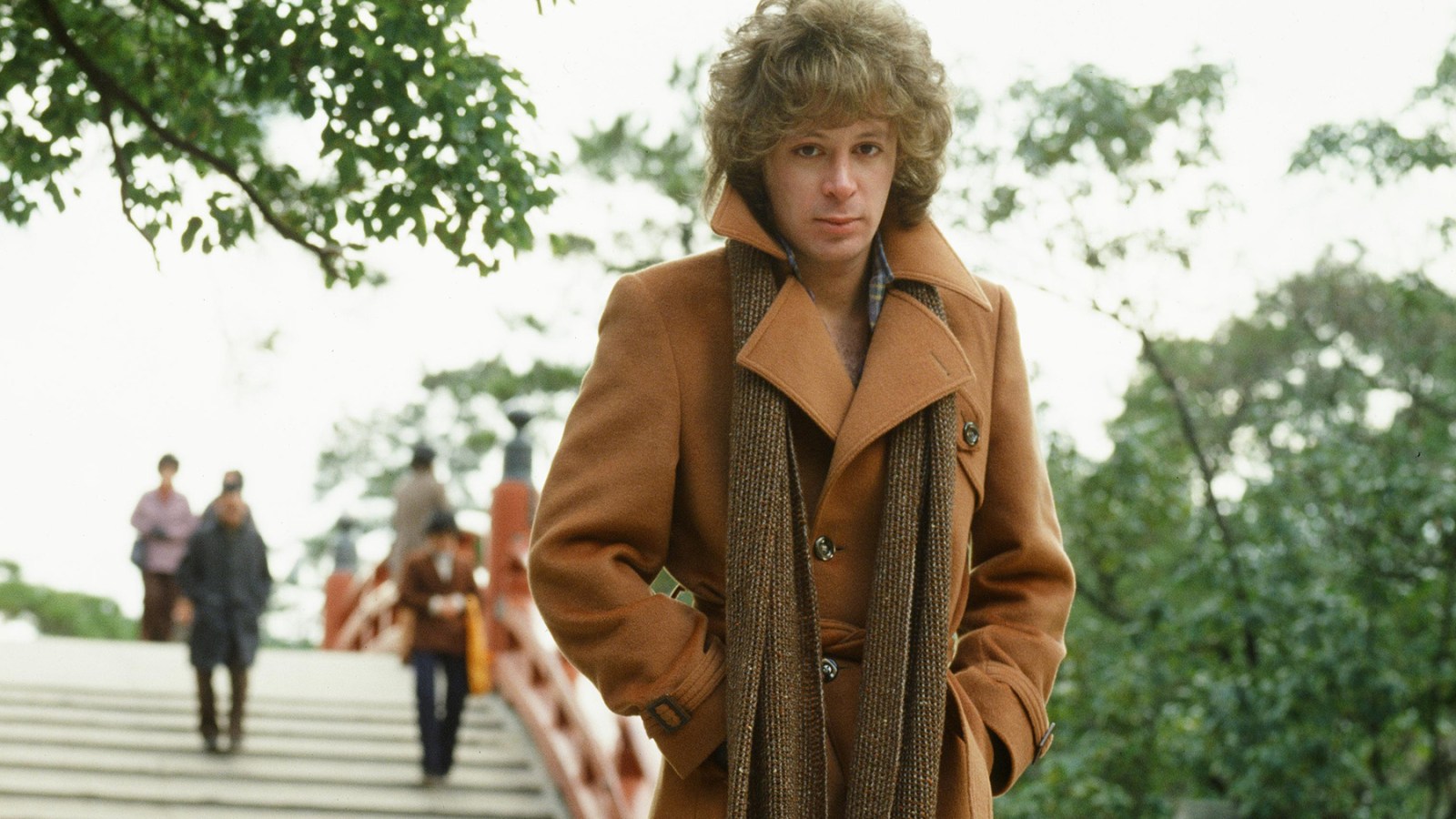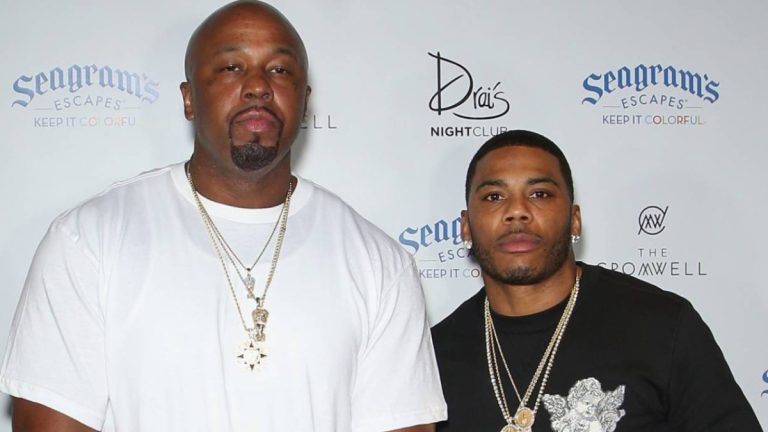Earlier this month, we published an extensive profile of Eric Carmen that delved into the brilliant music and complicated private life of the pop visionary, who died in March 2024. It touched upon Carmen’s childhood in the suburbs of Cleveland, Ohio, the rise of his power-pop group the Raspberries, their collapse just two years after scoring a massive hit with “Go All the Way,” the creation of his solo classic “All by Myself,” and his decision to largely abandon his career in the Nineties.
The final two decades of Carmen’s life were marked by a significant drinking problem, the collapse of his marriage to former model Susan McClurg, and a bitter schism that separated him from his brother, Fred, and two children, Clayton and Kathryn. He married meteorologist Amy Murphy in 2016, and lived with her until his death. There’s an ongoing legal clash between Amy and Carmen’s children over his estate, and extremely bruised feelings on both sides of the divide.
His was a very big story to tell in a single article. Here, we share some of what else we learned about Eric Carmen.
1. The success of “Go All the Way” created a major rift between Carmen and Raspberries guitarist Wally Bryson.
The Raspberries landed a hit right out of the gate when “Go All the Way,” a single from their 1972 self-titled debut, reached Number 5 on the Hot 100. Carmen is credited as the main songwriter, but guitarist Wally Bryson came up with the distinctive guitar part that kicks off the song.
“We started out on that first album as a songwriting team,” Bryson says. “And then his uncle, who was a lawyer, would copyright all of our songs. But I worked with Eric on the intro to ‘Go All the Way.’ They told me that they couldn’t copyright an intro, so my name wouldn’t be on it. They actually list me as a co-writer on the album, but on the single it’s just listed as ‘Eric Carmen.’ I never wrote with him again after that.”
The spat over the “Go All the Way” credits grew in the years that followed the Raspberries’ breakup when the song started popping up in movies like Almost Famous, Dark Shadows, and even Guardians of the Galaxy, generating significant income for Carmen. “The reality is if you listen to Eric’s demo, it’s the exact same guitar part,” says David Spero, who managed Carmen in the late Nineties and early 2000s. “But Wally plays it like Wally plays it, which is a different vibe.”
2. There were other issues in the Raspberries.
“There was always this pull and tug in the band,” says Fred Carmen. “And when [bassist] Dave Smally was in the band, Dave wrote sort of Eagle-ish country stuff. Wally wrote a little more rocky stuff. Eric didn’t pick singles, record companies pick singles, but the singles that they always picked were Eric’s songs. And so there was a certain…I don’t know if the right word is ‘resentment,’ but there was a certain feeling among band members that it wasn’t Eric Carmen and the Raspberries, it was the Raspberries and that they should be featured as well as Eric. That did cause some friction in the day.”
3. Carmen and Bryson had beef, but Carmen raved about the guitarist.
The “Go All the Way” credits were just one aspect of a feud between Carmen and Bryson that lasted for decades. “They were a classic love-hate story,” says Fred Carmen. “They were both better together than they ever were apart. And yet being together was very frustrating for them because Wally wanted a bigger role.”
Carmen maintained a friendship with Raspberries drummer Jim Bonfanti after the split, but that wasn’t the case with Bryson. “Wally became a sort of local Clive Davis to Eric, the career interrupter or destroyer,” says Susan Carmen, referencing Eric’s multitude of frustrations with Clive Davis over the years. “They just always butted heads.” They finally came to a truce of sorts during the reunion period in the 2000s. “They got back together and they played together,” says Fred Carmen, “and I remember Eric telling me, ‘I know Wally can be a pain sometimes, but there’s no better guitar player in the world.’”
4. Carmen’s 1980 solo LP Tonight You’re Mine has a very unfortunate cover.
After the commercial failure of his 1977 masterpiece Boats Against the Current, Carmen released a series of albums that received little promotion and completely flopped. A low point came on 1980’s Tonight You’re Mine, his final album for Arista, when Carmen’s manager cooked up one of the worst album covers in rock history.
“We took lots of pictures in all sorts of poses,” Carmen explained to authors Bernie Hogya and Ken Sharp in their book Marathon Man. “Then I posed for some photos. They took one picture that I was in and another pictures that was she was in and spliced them together. We weren’t actually in that pose together. It caused a bit of controversy and I wasn’t very happy with it…shortly thereafter, my manager and I parted ways.”
5. His comeback hit “Hungry Eyes” came together quite randomly.
Carmen’s career was on life support when former Raspberries producer Jimmy Ienner called him. He was putting together a soundtrack for an upcoming Patrick Swayze movie, and had a song called “Hungry Eyes,” written by John DeNicola and Franke Previte, that he felt would be perfect for him to sing. According to Fred Carmen, Eric didn’t want to do it because he had bad memories of working with Ienner in the days of the Raspberries.
“I said, ‘Look, Eric, you don’t have anything you’re doing right now,’” says Fred Carmen. “‘Instead of just passing, why don’t we see what it is he wants you to do? Ask him to send you a rough copy of the movie.’ They sent us a rough copy of Dirty Dancing without any music. We watched it and we said, ‘It’s certainly not embarrassing.’”
Eric agreed to record the song on the condition he could cut it in a Cleveland studio. “We had no idea that Dirty Dancing would be what it was,” says Fred Carmen, “or that ‘Hungry Eyes’ would be what it was. It was a very pleasant surprise.”
6. The Dirty Dancing tour was a nightmare.
In the summer of 1988, Carmen took part in a Dirty Dancing tour alongside Bill Medley of the Righteous Brothers, legendary background singer Merry Clayton, and Sixties Motown act the Contours. They hit 90 cities in just three months. “Before we’d go to sleep at night, I would write down on a sticky note and put it on the nightstand what city we were in, because you wouldn’t remember,” says Susan Carmen. “It was really rough on Eric. He’s such a perfectionist, and he couldn’t control so many aspects of that tour.”
“It turned out to be the hottest summer in 50 years,” Eric Carmen told Hogya and Sharp. “I can’t tell you how much fun it was doing two shows, one at 5:00 p.m. and the other at 8:00 p.m. at Six Flags over St. Louis in 112-degree heart and 98 percent humidity with no air conditioning anywhere on the premises. People were dropping like flies. They actually had medics with oxygen backstage in case performers didn’t make it through the show.”
7. His 1988 hit “Make Me Lose Control” originally had a different title.
After “Hungry Eyes” exploded, an Eric Carmen Greatest Hits package quickly came together. He had a new song he wanted to include called “Long Live Rock and Roll,” a nostalgic look back to the early days of rock. “Clive doesn’t like it,” says Hogya. “Clive thinks it’s too old-fashioned. He wants something more contemporary because he doesn’t want him stuck in the Dirty Dancing era. Eric brings [his “Almost Paradise” co-writer] Dean Pitchford in, who changes ‘Long Live Rock and Roll’ to ‘Make Me Lose Control.’” The song shot to Number 3 on the Hot 100, one slot above the peak of “Hungry Eyes.” Just last year, it appeared in the action film Deadpool & Wolverine.
8. All of Carmen’s momentum didn’t lead to a new album.
One of the biggest mysteries of Eric Carmen’s career revolves around his failure to release a new album after the back-to-back successes of “Hungry Eyes” and “Make Me Lose Control.” It turns out that Carmen was initially very eager to make one, but the project stalled after a deflating meeting with Arista head Clive Davis.
“Clive tells Eric, ‘We want you to do an album of just covers,’” says Hogya, “‘because ‘Hungry Eyes’ was so big, and you needed some help on ‘Make Me Lose Control.’ You should just let somebody else write these things, and you come in like ‘Hungry Eyes and you sing them. We’re going to pick the hits for you, and it’s going to be great.’ And so of course that’s pretty disheartening when you think you’re a songwriter primarily.”
9. Carmen released an under-the-radar song in 1991 written by Diane Warren.
Carmen briefly attempted to appease Davis, recording Diane Warren’s “My Heart Stops” in 1991. “Arista just tested it,” says Hogya. “They put it out again on a promo CD to radio stations with some of Eric’s other hits on it, and it didn’t really get any traction. Eric wasn’t enthusiastic, and Clive wasn’t enthusiastic. They just dropped it, and nothing came out.” A mere three years had passed since “Make Me Lose Control,” but the industry had undergone seismic shifts in that time, and Carmen already felt like a relic.
10. There was a final album in 1998, but few know it exists.
In 1998, Carmen made one last attempt at an album when recorded Winder Dreams for a Japanese record label. It features his take on classics like “Caroline, No” by the Beach Boys and “Walk Away Renée” by the Lefte Banke, in addition to originals that he wrote with Warren, John Wesley Harding, Andy Goldmark, and others. In 2000, the album was released in America with the new title I Was Born to Love You. Only the most devoted Eric Carmen fans even knew it existed.
11. The Raspberries reunion had many false starts.
In the late Nineties, David Spero invited all four Raspberries to his house to see if a reunion was possible. “Jim and Dave came first,” says Spero. “And I looked out the window and saw both Eric and Wally driving in circles around our street. Neither of them wanted to be the second-to-last guy to come in. I called Eric on the phone and went, ‘Get your ass in here. Are you 12-years-old?’”
Once they all got inside, Spero told them an offer was on the table for the Raspberries to tour with Cheap Trick. But it didn’t take long for Carmen and Bryson to start arguing. “Wally said, ‘Well, you’ve got to give me credit then for ‘Go All the Way’ because I did the guitar part, and that’s the whole song,’” says Spero. “But I managed to get them to agree to a deal for the tour. Obviously, Eric got more, just like Ronnie Wood doesn’t get what Mick [Jagger] and Keith [Richards] gets for a tour, and Joe Walsh doesn’t make what Don Henley makes. Wally calls me the next day and he says, ‘I want one more point. I want a point of Eric’s so that I’m getting more than the other two guys.’ I said, ‘You can’t nickel and dime this, Wally. There’s a lot of money out there for everybody.’ And it imploded.”
12. The eventual Raspberries reunion in 2004 came after intense rehearsals.
The band didn’t reunite until they received an offer to open the new House of Blues in Cleveland in November 2004. Carmen insisted on three months of full-time rehearsals. “Literally, we took every song apart and put it back together,” says drummer Bonfanti. “When we came onstage at that first show, we felt like we were a horse that had been waiting for the gate to open at a race. It was extremely emotional to old fans that we hadn’t seen in many, many years there, along with our kids and old friends. It was just an incredible night. I’ll never forget how I felt.”




Leave a Comment